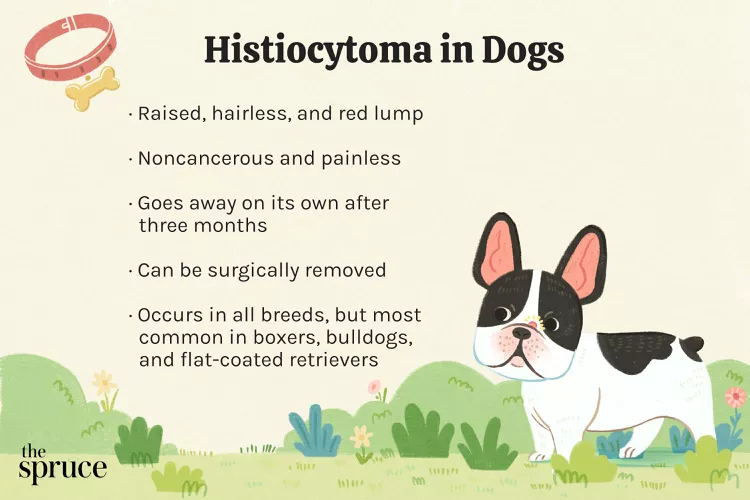
Rosemary, a woody herb, has aromatic leaves that are often used in cooking. It also has many reported health benefits, ranging from antibacterial properties to antioxidant powers, to possible anti-cancer benefits. All of this may lead you to wonder if rosemary is good for your dog too, and whether or not it is safe. Rosemary is not considered toxic to dogs, but there are some caveats.
Before giving any human foods or medications to your dog, it is always important to find out whether or not it is safe. As it turns out, many foods and medications that are perfectly fine for us can be toxic to our pets, so it is never a good idea to assume something is okay for dogs without verifying. When it comes to rosemary, it's considered non-toxic to dogs, although there are some caveats to that.
The fresh leaves are very dense plant matter with a lot of fiber, so if your dog were to consume a very large amount of fresh rosemary leaves, it could cause some tummy upset like vomiting and/or diarrhea. Most cases will resolve quickly, but you should see your vet anytime vomiting or diarrhea lasts more than 24 hours and/or if your pup seems lethargic or is not eating. Other concentrated forms of rosemary can be more toxic depending on their preparation and use.
Rosemary essential oils can be toxic due to the presence of camphor and other ingredients that may be harmful to your pup. It also depends on the route of administration as some of these ingredients may be toxic if swallowed, while others may be irritating to the skin if applied topically. Some underlying conditions may make your pup more at risk for complications.
Dogs with seizure conditions like epilepsy should probably avoid rosemary altogether. This comes from evidence in human medicine that humans with existing seizure disorders can have seizures from rosemary essential oils. While there has not been a direct study on dogs to see if the same holds true, it is better to play it safe and avoid rosemary in dogs with pre-existing seizure conditions. And if in doubt, it is always best to consult your vet before using any new products for your pup.
If you scan the internet, you will find claims that rosemary can help with a huge range of ailments and provide benefits including boosting immunity, reducing stress, and fighting cancer. It is also believed to be a potent antioxidant and has antimicrobial properties. While not all of these claims have been thoroughly researched, there are some well-documented benefits to rosemary.
Rosemary contains chemical compounds such as diterpenes, carnosol, and carnosic acid. These compounds are thought to have the ability to scavenge free radicals that cause damage to different cells in the body. Antioxidants can neutralize free radicals, protecting the cells within the body from damage. It is unknown exactly what dose would be necessary in dogs for this to have a potent effect, but giving a small amount to your pup in the form of fresh or dried rosemary leaves is generally considered safe and may provide some antioxidant benefits.
Rosemary is also thought to have potent antimicrobial properties against some bacteria and fungi. In fact, sometimes it is used as a preservative in human food due to its antimicrobial properties. In dogs, the evidence has not been as convincing as it only shows mild effects against the common microorganisms that cause infections in dogs. It may be a good supplementary treatment to use in addition to medication provided by your vet but likely is not effective enough to cure an infection on its own.
When rosemary leaf extracts are applied to dog cancer cells in laboratory settings, they show an ability to kill cancer cells and slow the growth of tumors. Whether or not this same scenario plays out inside the body has not been proven yet, but it seems to be a promising area of study.
If you want to give rosemary a try with your pup, always start with a very small amount to see how your dog responds (and check with your vet before giving the plant to your pup). Since the safest way to try it out is with fresh or dried leaves, try putting a small sprinkle of leaves into your dog’s food for a few days and monitor closely for any changes.
If you are considering using rosemary topically to treat a skin condition, consult with a veterinarian who has training in alternative or holistic medicines to ensure you use products that are safe for your dog. If you are concerned that your pup ingested too much rosemary or ate a product that was intended for use on the skin, contact your vet right away and consider calling a pet poison control hotline, such as the ASPCA Poison Control Center, to find out what you need to do.
Rosemary may have some helpful benefits to pups. While there is still much to learn about the most effective and safe ways to use it, a little bit of fresh or dried rosemary can be a good way to get started. Your pup may even enjoy the added perk of its delicious smell and taste.

Cute Pictures & Facts About Calico Cats & Kittens
Learn fascinating facts about calico cats, including photos, the genetics behind this color combination, and common folklore and traditions.
How to Prevent Cat Separation Anxiety During Vacations
Discover why cats develop litter box problems and cat behavior problems when you go on vacation and what you can do about it to help them.
Cat Behavior Changes That Might Mean Something's Wrong
Cats' behavioral changes may indicate problems—or they may mean nothing at all. Explore causes of odd behavior and what to do about them.
Lhasa Apso: Dog Breed Characteristics & Care
The Lhasa apso is an ancient breed from Tibet that was bred to be a watchdog. Learn about its history, health, exercise needs, and more.
Reasons Why Dogs Run Away and How to Stop It
Dogs can escape, especially if they’re bored and not properly contained. Here are some techniques for stopping your dog from running away.
Can Dogs Get Depression? How to Help Your Sad Dog
Can dogs get depression? Learn about the signs of depression in dogs and find out how to help your sad dog.
How to Stop Aggression in Dogs
Dog aggression can be a serious behavior issue for pet owners. Learn how to stop aggression in dogs before someone gets hurt.
How to Stop Your Dog From Growling
A growling dog can soon become even more aggressive. Reduce the noise and potential for a dangerous situation with some of these techniques.
Why Do Dogs Dig Holes? How to Stop Your Dog from Relandscaping Your Yard
Dogs have been digging holes for centuries and for many reasons. Whether they’re bored or want to cool off in the dirt, here are the top reasons why dogs dig holes.
Dog Treat Varieties
Learn about the different types of dog treats on the market and decide which are best for your dog.
Can Dogs Eat Asparagus?
Dogs can eat asparagus, provided the vegetable is cooked plain and cut up for them. Seasonings, salt, and butter make it unhealthy for dogs.
Histiocytomas in Dogs
A histiocytoma is a type of benign (non-cancerous) skin lump that usually affects young dogs. Learn the causes, treatment, and prevention.
Why Is My Dog’s Eye Swollen?
If your dog's eye is swollen, she may need veterinary attention. The inflammation could be caused by allergies, an injury, or even a tumor.
Common Bugs and Parasites Found on and Inside Dogs
Learn about common types of parasites in dogs. Find out how to treat and prevent parasites to keep your dog, your family, and yourself safe.
Exploring the Different Types of Pet-Friendly Beaches
Are you looking for pet-friendly beaches? Learn about the different types of pet-friendly beaches, their locations, and tips for visiting them with your pet.
10 Obscure, Little-known Canine Facts in Honor of National Dog Day
With National Dog Day upon us, it's time to celebrate everything about our favorite pets—even the weirder stuff. Here are 10 obscure facts about dogs you probably didn't know.
Kitten Development From 3 to 6 Months Old
Kittens grow and change a lot during their first year. Find out what happens between the ages of three months and six months old.
95 Siamese Cat Names
Our list of Siamese cat names has diverse and fun options to help you choose the ideal moniker for your elegant and lovable feline companion.
What to Buy for Your New Cat: A List of Essentials
Before you bring your new cat or kitten home, there are a number of things to collect or buy so your cat will feel welcomed like a family member.
The 6 Best Cat Nail Clippers of 2024 for a Safe Trim
Clipping your cat's nails can save your furniture and keep your kitty comfortable. We asked veterinarians for their cat nail clipper recommendations.